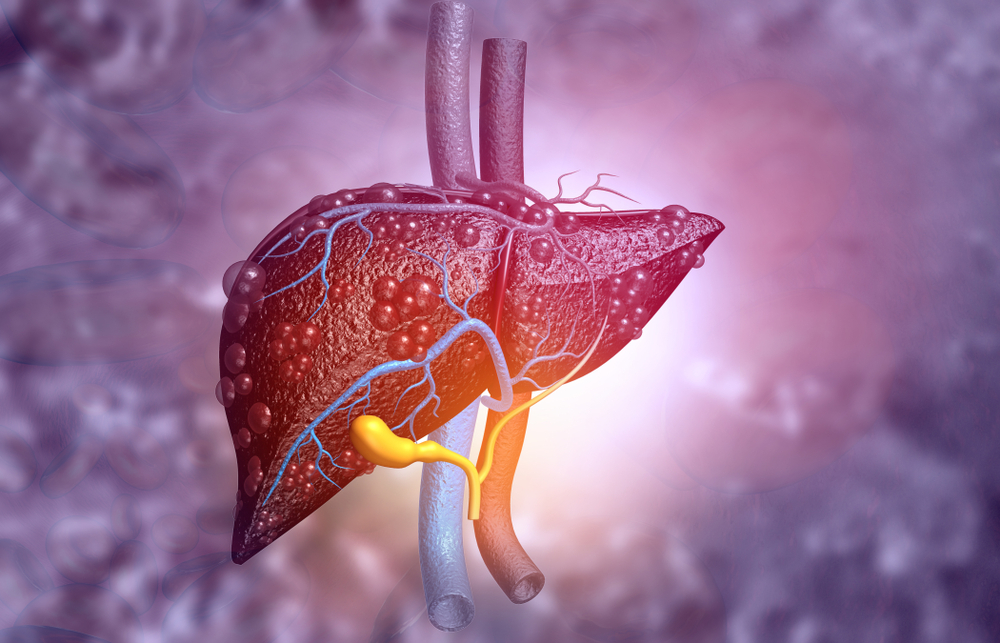
Overview
Primary hepatic cancer, commonly called liver cancer, is a critical clinical condition of the liver characterised by abnormal cell growth (tumour), which first begins in the liver and spreads to other organs at a later stage (stage four). It could either be caused by the malignant growth that primarily starts in the liver or spread (liver metastasis) from other regions or organs. However, the most common form of liver cancer is liver metastasis. Predominant diagnosed symptoms are abdominal swelling, yellowish skin, pains at the right side below the ribcage, lump etc.
The malignancy may manifest as a result of hepatitis B, Hepatitis C, and alcoholism which may lead to liver cirrhosis. Therefore a sure way of preventing this condition is by tackling the causes.
The onset of liver cancer is between 50 to 60 years of age, and this case has prevailed to become global alarming.
Types of Liver Cancer
“Liver cancer” is a general term for malignant growth that evolved from any part of the liver (the parenchyma, bile duct, blood cells etc.). Given the condition, the listed below are the most common types of liver cancer.
- HCC-Hepatocellular Carcinoma. This accounts for the highest record of liver cancer in the world. Malignant growth is seen among liver cell hepatocytes.
- Angiosarcoma and hemangiosarcoma are the rarest types of hepatic cancer. The growth is seen in the endothelial layers of blood vessels. Necrosis or cell death and intense bleeding are common in these forms. Invariably, these types are best diagnosed by CT scan and MRI.
- Cholangiocarcinoma (CCA) emerges from the bile duct. Men predominantly suffer from this type, and associated risk factors are cholangitis and cirrhosis.
- Hepatoblastoma is rare and primarily found in the right lobe of the liver and also commonly occurs in toddlers. This type is associated with immature hepatocytes.
- Liver metastases. This occurs due to cancer spreading from other regions like the digestive tract, breast, prostate gland, ovary, etc.
Key Facts
- Liver cancer is a malignant condition of the liver.
- There are different types of liver cancer.
- It has four stages of manifestation and begins to spread to other body parts at stage four.
- Except at the early stage, there is no precise cure for it.
- Symptoms of liver cancer may point to other conditions; hence, a precise diagnosis is highly recommended.
- Upon the medical qualification of the patient, a successful surgical transplant may be the only permanent cure for liver cancer.
Symptoms
Indications of liver cancer are pointers for its diagnosis. Therefore, when these warning signs keep coming, the individual needs to see a doctor.
These signs are:
- Pains and lump in the right lower abdominal pain region
- Jaundice – whitish skin and yellowish eyes
- Pale stool and dark urine
- Drastic weight loss (over six to twelve months)
- Absent of appetite with a swollen stomach
- Fatigue
- Lethargic feelings
Moreover, these signals may not only be limited to liver cancer. This is because other conditions may also prompt these symptoms. Therefore, only an accurate diagnostic approach can differentiate the complications.
Diagnosis
Different diagnostic processes for liver cancer conditions can be engaged thus:
- Liver function test:
This will help study the functionality of the liver upon blood test. The blood test surveys the activities of enzymes and other substances that will report liver functioning. For instance, a high amount of alfa-ferotein protein means a high probability of liver cancer.
- CT scan (X-ray) and MRI(magnetic waves):
The detailed pictorial report from the CT scan and MRI will give accurate information about the tumour’s location and size.
- Biopsies
It’s the most adequate technique to detect liver cancer. It implies medically extracting liver tissues for cancer inspection.
- Angiogram
For this test, blockages can be verified. The doctor injects dyes into the blood vessels to trace liver activities.
Causes
What factors and conditions can probably cause primary liver cancer?
Malignant growth in any region of the liver may be caused due to the following:
- Sixty years old and older.
- Medical history of liver cancer in the patient’s family.
- Metastasis from neighbouring organs such as the GIT
- History of liver cirrhosis, HIV hepatitis B and C, liver fluke etc.
- A particular lifestyle like alcoholism and smoking.
- When the fungus, mould, grows on certain foods like peanuts, soybeans, and corn, aflatoxins are produced. Excessive exposure to aflatoxin may trigger the onset of liver cancer.
- Fatness
- Low immunity
Stages of liver cancer
Depending on its onset and occurrence, there are four medical stages of liver cancer.
- Stage one
The malignancy is only limited to the hepatic region. Therefore, no metastasis yet.
- Stage two
Minute tumour cells begin to migrate towards the blood vessels.
- Stage three
Some tumours have started reaching the large blood cells
- Stage four
Spreading commences. At this stage, the tumour metastasis to neighbouring organs and tissues, for example, bone tissues, lungs, and lymph nodes.
Prevention
While there are no precise causes of liver cancer medically, they’re no specific preventive measures for the condition as well. However, adopting and learning several helpful habits and lifestyles will support in enhancing the state thus;
- Regular exercise lifestyle to reduce fat.
- Quit smoking and alcohol consumption.
- Protect yourself from heavy chemical exposure.
- Avoid eating spoiled food
- The treatment plan for the risk factors of liver cancer.
Typical Treatment
Most cancer therapies deemed the better options are critical as intricacies are involved. Treatment for liver cancer includes the following;
- Selective Internal Radiation Therapy (SIRT)
For this kind of radiotherapy, the doctor will inject beads into the liver. The radiation kills the cancerous cells. However, this may incur side effects like vomiting and nausea.
- Chemotherapy
The healthcare professional will inject anticancer drugs directly into the tumour, sometimes after blocking a particular blood vessel.
- Surgical replacement
In many cases, a liver transplant is the most effective option. Regardless, some individuals may not qualify for it as some patients may not be healthy enough for it and the size of the tumour matters. A successful liver transplant may be a permanent cure for liver cancer.
- Partial hepatectomy
Partial hepatectomy implies the partial removal of the affected part of the liver. The healthcare team may welcome this option if the size of the cancer is considerably small. This surgery is usually carried out at the initial stage of cancer.
Conclusion
Many people with liver cancer just noticed its onset after a clinical trial. For some, it’s family history. Albeit, if liver cancer can be diagnosed earlier, i.e. at stage one, possible therapeutic measures may be approved to prevent it from getting worse.
Since its primarily common among men and the elderly, treating it as risk factors like hepatitis, diabetes, and prostrate conditions should be taken seriously.
MOST COMMON






